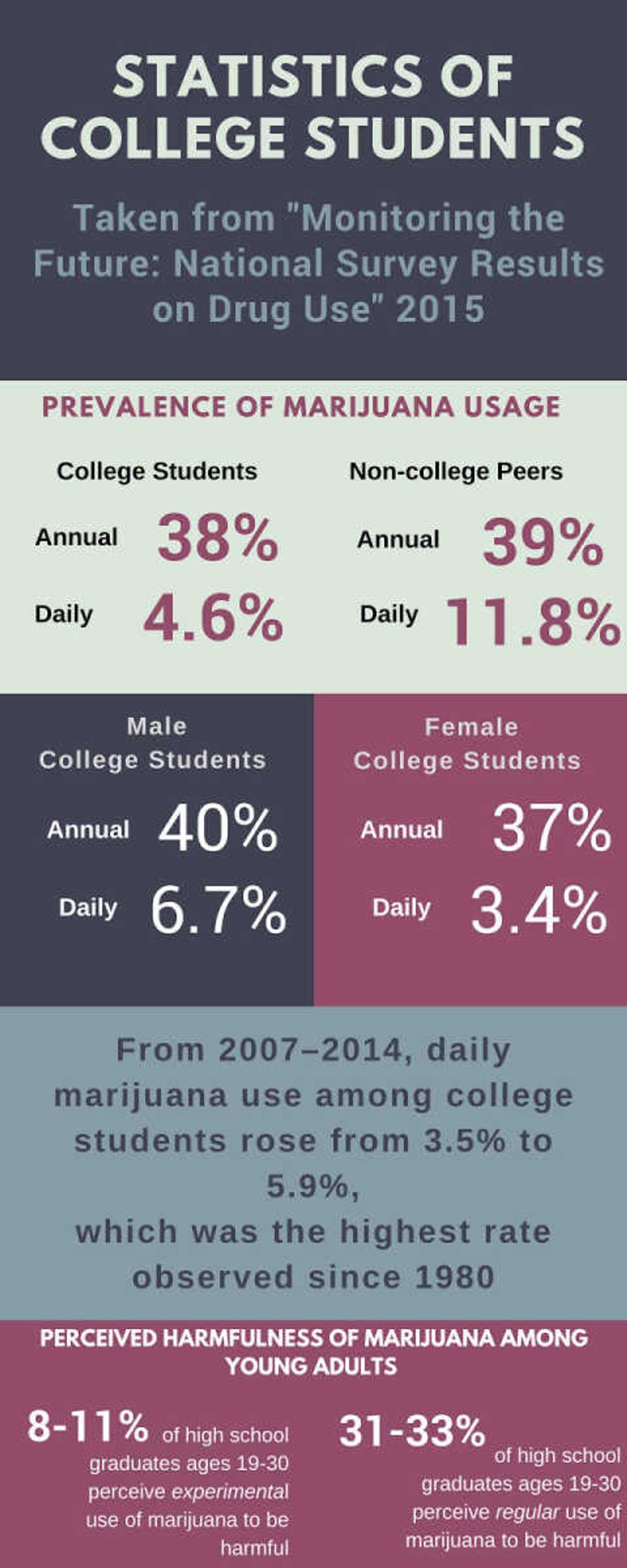Southeast athletics on marijuana usage
States across the country are debating the merits of legalizing marijuana, and organizations around the United States are also having to take a look at their drug policies as well. At Southeast Missouri State, there are very clear rules and regulations to which the athletics department much abide concerning drugs such as marijuana...
States across the country are debating the merits of legalizing marijuana, and organizations around the United States are also having to take a look at their drug policies as well.
At Southeast Missouri State, there are very clear rules and regulations to which the athletics department much abide concerning drugs such as marijuana.
Cannabinoids (marijuana) is listed as a banned substance as an illegal drug, but there are legal substances that are also outlawed.
Assistant Director of Athletics/Compliance Rachel Blunt said the athletics department tests a random sample of student-athletes monthly for banned substances. The Department of Athletics Policies and Procedures Handbook states that student-athletes will be notified at least 12 hours prior to taking the test.
“Our student-athletes sign off on a drug screening program and that basically outlines our policies and procedures,” Blunt said. “We drug test randomly and if someone tests positive for marijuana.”
Southeast used to have a two-strike program, but recently changed to a three-strike program, similar to that of many other universities. With each positive test, the consequences get more severe.
“The first time they test positive, the student-athlete goes on the drug-test list every month that we conduct for one whole calendar year,” Blunt said. “There is no withholding from competition, but there is an educational program which they have to go through with counseling and disability services.”
While there is no suspension for the first offense, the student-athlete must have a meeting with the athletics direction, Brady Barke, and a notification will be sent to their parents. These measures are also taken for the next offense.
Players will be suspended immediately following a second positive test for 20 percent of the team’s competitions.
A third offense will lead the player to be dismissed from the team.
“For us, the third time they test positive they are no longer allowed to take part in athletics at Southeast Missouri State,” Blunt said. “Their scholarship would be canceled likely at the end of the semester.”
The NCAA uses a third party to test student-athletes for drugs, both performance-enhancing and recreational. The NCAA states on its website marijuana is banned and “can result in suspension”.
The Ohio Valley Conference itself does not have any specific rules for marijuana, or other drugs, but does require its members to test its players.
In 2014, OVC member Eastern Kentucky brought in former Ohio State defensive end Noah Spence, after he was declared "permanently ineligible from all intercollegiate athletics competition," by the Big Ten Conference following several failed drug tests.
“They really don’t because they allow the institutions to make those decisions, so each school in the OVC has a different drug-testing policy, you wouldn’t see two that look the exact same, but every school is required to have some kind of drug-screening program,” Blunt said.
In September of 2015, marijuana was found in the home of three football players, as well as one former player.
“Anytime something like that comes up we have, as a department, policies and procedures that we have to follow regarding that,” Blunt said. “Whether it’s with our drug-screening program or our student code of conduct, one of those two areas are typically going to cover drug-related items.”








